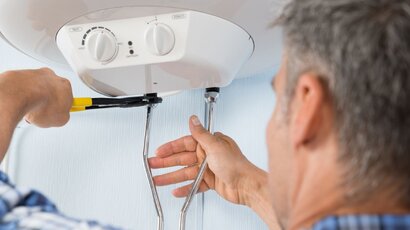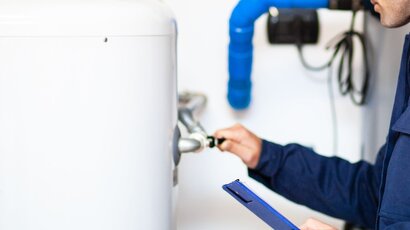Benefits Of Electric Hot Water Over Gas
Electric hot water systems are gaining popularity for their efficiency and sustainability. Explore the advantages they offer over traditional gas systems.
Why are so many Australian households shifting to electric hot water systems lately? This rapid rise in adoption is more than just a fleeting trend; it signals a significant shift in how we approach energy use, efficiency, and comfort at home. Electric hot water systems have increasingly become a preferred choice due to their convenience, reliability, and adaptability to different energy sources— making them an ideal fit for modern Australian lifestyles.
In this article, we’ll dive into the reasons behind the growing popularity of electric hot water systems. From understanding the energy benefits they bring to exploring their environmental impacts, we’ll help you make sense of why these systems are rapidly becoming the standard in many homes across Australia.
If you’re thinking about switching or just want to get a clearer picture of how this could affect your energy usage, you’re in the right place. Let’s look into the growing trend of electric hot water systems and figure out how they could be a good fit for your home.
Electric hot water systems play a big role in promoting a greener planet. Unlike their gas counterparts, these electric models mesh well with renewable energy sources like solar and wind, helping cut back on fossil fuel reliance.
Electric hot water systems, when powered by a solar PV system or wind energy, drastically reduce greenhouse gas emissions compared to gas water heaters. Gas systems, which rely on natural gas, emit more greenhouse gases and contribute to higher carbon emissions.
In contrast, modern electric systems, such as electric heat pump systems and electric storage tank systems, offer improved energy efficiency and environmental benefits, especially when coupled with renewable energy sources. The compatibility of electric systems with solar hot water systems further boosts their sustainability, making them a preferred option for environmentally-conscious homeowners.

Electric hot water systems are also cost-effective, providing financial advantages over a gas hot water system. One major benefit is the lower maintenance costs associated with electric systems compared to gas appliances, which require proper ventilation and regular checks for gas leaks or carbon monoxide.
Plus, electric systems typically come with lower running costs, particularly when hooked up to renewable sources like solar. With gas prices climbing, electric systems using solar PV or heat pumps can slash your energy bills. Government rebates for switching to electric systems sweeten the financial deal even more.
When comparing the long-term expenses of electric vs gas hot water systems, electric models typically have lower running costs and fewer repair needs. Gas systems, such as instantaneous gas systems or gas water heaters, often have higher typical running costs and require venting systems for safety.
While the initial cost of an electric hot water system may be comparable to gas models, the actual running costs and potential for energy savings make electric hot water systems a smart, cost-effective choice in the long run. Electric storage tank systems, electric heat pump systems, and electric water heaters are all designed to heat water efficiently, providing consistent hot water availability without the added expense of gas lines and gas appliances.
Electric hot water systems are renowned for their safety features, particularly in comparison to gas hot water systems. Unlike gas water heaters, which carry the risk of gas leaks or carbon monoxide poisoning, electric systems eliminate these hazards, making them a safer choice for households.
Not having gas lines or venting needs means there are fewer safety worries and less maintenance. Electric water heaters and storage tank systems come with features that ensure they operate safely, like insulated tanks that prevent heat loss and save energy.
In terms of reliability, electric hot water systems are known for their consistent performance and fewer breakdowns compared to gas systems. Modern electric systems, including electric heat pumps and electric storage tank systems, are built to provide a steady hot water supply, ensuring that households always have hot water when needed.
Unlike gas hot water heaters, which may be affected by fluctuations in natural gas supply or require continuous flow systems, electric models offer dependable hot water availability. Whether it’s an electric storage tank system, an electric heat pump, or an instantaneous electric system, the reliability and energy efficiency of electric hot water systems make them a solid choice for Australian households seeking a dependable hot water unit.
Electric hot water systems aren’t just safe; they’re also budget-friendly and reliable, making them an appealing choice over gas heaters. Thanks to their low running costs, energy efficiency, and renewable energy compatibility, these systems are becoming the go-to for modern Aussie homes.
Electric hot water systems are generally easier to install compared to gas hot water systems. The absence of gas lines, gas hot water system components, and venting systems simplifies the installation process, making it quicker and more straightforward for homeowners. Unlike gas systems, which require proper ventilation to prevent gas build-up and carbon monoxide risks, electric systems can be installed with minimal requirements.
This simplicity reduces the initial cost and translates to lower ongoing maintenance costs. Electric water heaters, storage tank systems, and heat pumps require less frequent servicing, making them a cost-effective choice for homeowners seeking a hassle-free hot water system. Additionally, electric hot water systems do not need continuous flow or gas systems to heat water, further reducing complexity.

Modern electric hot water systems have benefited from significant technological advancements. Innovations such as smart technology integration allow users to control their electric water heater or electric storage tank system remotely, improving convenience and energy efficiency.
Features like timers and energy usage monitoring help homeowners optimise how much hot water they use and reduce energy costs. Additionally, advancements in insulated tank designs ensure that heat is retained longer, minimising energy waste.
The development of electric heat pumps and instantaneous electric systems has also improved efficiency, providing households with an energy-efficient hot water supply without the delays of traditional systems. The use of electric elements in these systems also ensures quick heating of water, similar to an electric kettle.
These technological features make electric hot water systems an appealing option for those looking for greater control and cost savings.
Industry experts widely acknowledge the benefits of electric hot water systems compared to gas hot water systems. When considering gas vs electric hot water systems, electric models offer several advantages.
Electric systems are generally safer, as they eliminate the need for gas lines, venting, and the associated risks of gas leaks or carbon monoxide. Gas water heaters require extensive venting and pose safety risks, whereas electric systems are straightforward and pose fewer hazards. Additionally, electric systems are more energy-efficient, especially when integrated with renewable energy sources like solar hot water systems or electric heat pumps.
Many professionals highlight the increasing preference for electric systems due to rising gas prices and the growing emphasis on renewable energy integration. As electricity prices become more competitive and the efficiency of electric hot water systems improves, these systems are likely to play a pivotal role in transitioning towards more sustainable, energy-efficient homes across Australia.
Experts point out that innovations such as electric heat pumps and solar hot water systems contribute to significant energy savings, making electric systems the more attractive choice in the gas vs electric hot water debate.
Electric hot water systems are key players in achieving energy independence for Australian households. By integrating with renewable energy sources like solar hot water systems and solar PV systems, homeowners can reduce reliance on the grid and take control of their energy usage.
Future trends indicate that electric systems will continue to evolve, with improvements in energy efficiency and the introduction of new technologies such as advanced electric heat pumps and smart control features. These innovations are expected to make electric hot water systems even more attractive, helping Australians transition towards energy independence and greater sustainability.
The ability of electric systems to operate without the need for gas lines or gas appliances and the inclusion of insulated storage tanks and electric elements further solidifies their role in the future of energy-efficient, environmentally-friendly hot water solutions. Continuous flow technology and advancements in electric heaters and instantaneous hot water systems also contribute to the evolving landscape of hot water availability for Australian homes.
If you’re looking to experience the comfort and efficiency of electric hot water systems, WP Plumbing is here to help. With extensive expertise in installing and servicing electric hot water systems, WP Plumbing is dedicated to providing quality service that ensures you get the most out of your hot water unit. Whether you’re considering upgrading your current hot water system or installing a new hot water system, WP Plumbing offers tailored solutions to meet your household’s needs.
Electric hot water systems offer numerous benefits, including improved energy efficiency, safety, and compatibility with renewable energy sources like solar hot water systems. WP Plumbing’s team of professionals is committed to helping you navigate these options, making the switch to a more energy-efficient and sustainable hot water system easy and stress-free.
For expert advice and installation of electric hot water systems, contact WP Plumbing today!
Electric hot water systems are popular in homes, but are they safe? Learn about safety features, possible risks, and tips for proper use to ensure peace of mind.
Electric hot water systems have a limited lifespan, influenced by usage, maintenance, and quality. Discover how long they last and when to consider upgrading.
Regular maintenance keeps electric hot water systems running smoothly and prevents costly issues. Follow these annual tips to enhance performance and durability.


